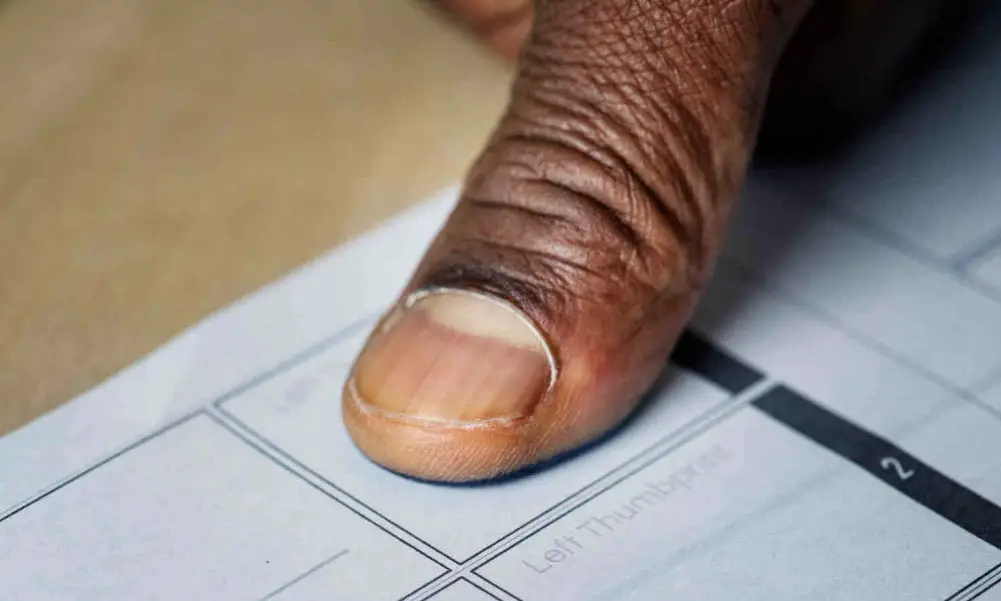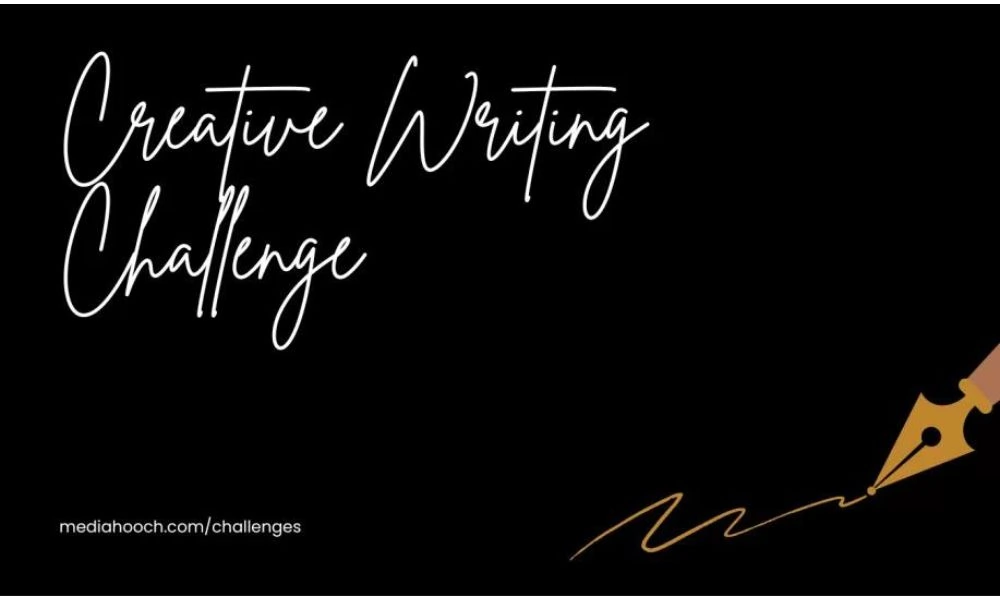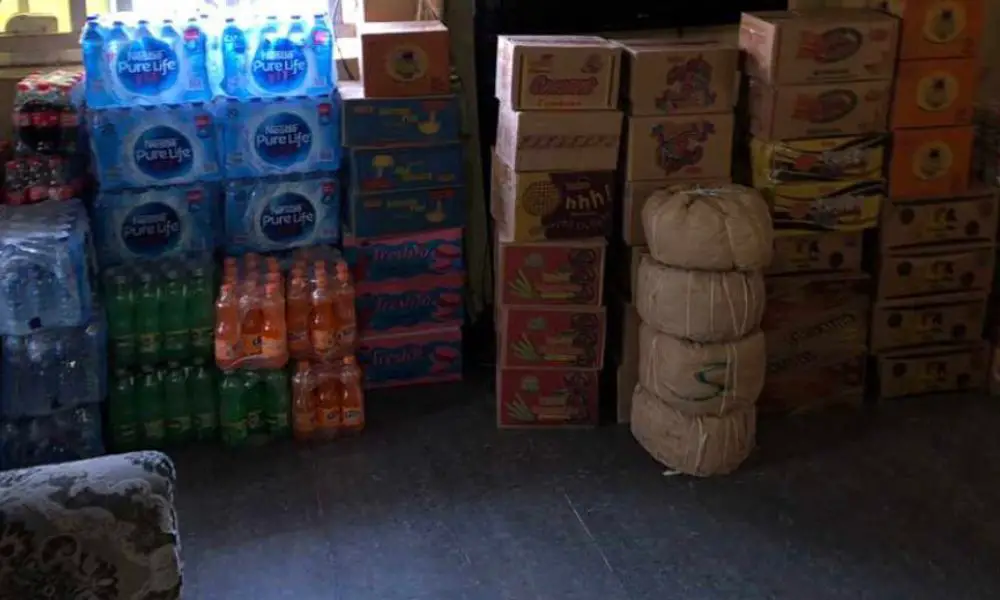The winners have finally emerged in a creative writing challenge organized by Mediahooch. The contest, which was planned in partnership with Northpad Nigeria and Poetic Wednesdays Initiative, who served as the judges, received over 50 entries from 31st December to 12th January.
After a thorough evaluation which commenced on 15th January, the judges finally agreed on the winners. Here is a list of the winners from descending order.
At the end of the day, every content creator is at the whims of the internet, but those who do better are different from those who do worse. In Northern Nigeria, the unemployment rate has been rising alarmingly recently.
To satisfy their never-ending desires, youth have turned to entrepreneurship, freelancing, and other methods. Fortunately, there were several opportunities to accommodate this departure when the media first emerged. Content creation is one example.
It might be said that content is life; it is what people consume daily from their smartphones, laptops, magazines, and other electronic devices. Most importantly, content is how you connect with the world around you every day, the people you meet, and the routine and conversations you have.
Content producers are aware that their work isn’t precisely simple. However, creating content in Northern Nigeria is a very different ballgame. Every Nigerian content producer can identify with the following challenges:
Blocks to creativity are quite real.
Your mind won’t constantly be buzzing with inspiration, and if you see other creators consistently coming up with brilliant ideas, you can feel even more pressure. Think about stuff, brain!
Creator tools are expensive
No one warned you that becoming a content creator in Nigeria would be this expensive, thus this ought to even be the first point! Web hosting, appointment-making software, payment processors, etc. Even worse, most prices are expressed in dollars, and the naira constantly plays tricks on your emotions.
NEPA will make you angry.
Should we even explain this? We all understand at this point that NEPA just exists to bring you into disrepute.
With the development of social media and the advent of the digital age, the majority of brands interact virtually with their audience. If the goal is to increase, effective content is essential for answering their inquiries. Understanding the type of content to convey the proper message on the most effective channel is crucial.
3.2 billion people are using the internet, which aids in the dissemination of misleading information. Your material must be able to reveal fake news and tell readers the truth about a variety of subjects. As a writer, do your research, study the subject you want to write about, and pretend that you are an investigative journalist.
The key to content success is generating the proper audience, as it is a waste of time and resources to produce excellent content that isn’t targeted to the right audience. Finding the correct audience allows for a thorough grasp of their pain issues, which aids in producing quality content.
There are undoubtedly many problems associated with content creation in Northern Nigeria, but there are also solutions that can help you get over these problems. The predominant problem is the power situation, creating content with power is not something people can rely on especially when it comes to working. using power banks is one option for content creators, particularly for those who don’t own cameras or utilize laptops for their work.
A quick glance into the world of social media today would show you that two of the most growing and most diverse forms of content creators in northern Nigeria are writers and artist. Content creators ranging from skit makers, relationship bloggers, spoken word artist, copywriters, graphic designers, photographers and the likes all fit into this category, they all are either writers, artist, both or at the very least have some powerful elements of the latter two.
Recently, there has been a growing rise in awareness of various sites and online companies were content creators can market their products and services and get paid in dollars. Although most of the sites and companies are legit, securing a freelancing job and earning in those sites are not as easy as a lot of online content creation tutors paint it out to be.
A lot of scammers hidden in content creators clothing have taken it upon themselves to take advantage of naive, gullible people and lure them into paying an exorbitant amount of fee for a course in content creation in the guise that after that class they would be able to earn millions of dollars online. Months later, after they’ve been manipulated and brainwashed and the money promised isn’t coming in, would they realized that all they’ve been made to believe were lies. This makes people especially those that have been victims of the scammers to be wary of it.
But thinking that content creators can only earn through those dollar paying sites is such a narrowed and parochial assumption. Content creators are all over social media platforms marketing their products and services, and getting jobs and gigs that pay well, even if the pay is in naira, at the same time building their resume and portfolio in the process.
Photographers, content writers, graphic designers, copywriters and other writing and graphic related content creators market their products and services better on social media platforms like Facebook, LinkedIn and Instagram. Where as vloggers, voice over artist and skit makers and other video related content creators market their products and services better on platforms like YouTube, Instagram and TikTok.
The more the amount of one’s followers increases, the more the number of their prospective clients increases. Content creators can earn through social media when clients go through their social media profiles, scan their contents and deemed them worthy of being awarded the job or contract. Some content creators if popular, also run adverts for people in their pages, which pays well.
As some content creators grow in followers and popularity they tend to lean towards social media influencing, thereby hitting two birds with one stone, by doubling up as both content creators and influencers, which is another lucrative way of earning.
All in all, contrary to what a lot of people assume, there are a lot of safe and legit ways content creators can earn through social media that does not involve dollar paying freelancing sites.
‘When Danladi began to behave wild, we tied and carried him to Baba who knew how to deal with such possessed children.
Baba said that all the science books Danladi was reading have caused some brain malfunction and that he’d cure Danladi at that instant. He disappeared into Danladi’s body. Baba began to fling out books. They were so many and bulky. We could hear Baba groan under their weight. With each book that appeared, Danladi struggled and cried…
Days have passed; we’ve moved books around to make room for more. Baba is still inside Danladi’s body.\\\’ That was what Ibro had written. He was sure the editors at Arewa Review would go mad over it. It was exactly 100 words long, just like Liman Maishanu, the Assistant Editor had instructed. Ibro sent the story via email and he soon got a reply, “Kindly come see me in the office by 4 pm.”
Although the reply didn’t reveal much, Ibro was certain he was going to leave Liman’s office with a bank credit alert. Once in Liman’s air-conditioned office, Ibro sat down without invitation. Both men were used to each other’s attitude. Liman’s table was occupied by a laptop and arrays of papers and files.
“You disappoint me, Ibro. A man of your talent should be working fully with us, but that is not the case. Your problem is you never follow simple instructions.”
Ibro was livid but kept his cool.
“I don’t understand. You said the magazine was losing subscribers to rivals and you wanted me to come up with something extraordinary, to help you generate more traffic for the next issue. That is exactly what I have done. Nobody wants to read rehashed stories again. Speculative fiction is the future.”
“The story is fascinating, no doubt. You remind me of Arimah, Emelumadu, and even Abubakar Adam Ibrahim. But our magazine is for the common man, not intellectuals. We have to consider the audience. And besides, the story isn’t complete.”
“The story is complete. You don’t just see it that way. Besides, that is what you get with such a restrictive word count.”
“Ibro, you can’t just write what you like. Even the likes of Chimamanda don’t write what they like. There are rules.”
“Rules are meant to be broken. You want to police your audience by keeping them on a strict diet. Perhaps that is why your mag is losing ground.”
“You see what I keep saying? You are stubborn and unbearable. Can’t you just accept you’re wrong for once?”
“It’s not my fault that I have a daring personality. If you don’t want the story, I will send it to The New Yorker.”
Ibro left Liman’s office disappointed. His rent would be due soon and writing has not taken him anywhere. He began to search for jobs online. At least, with his first-class degree in Chemistry from Usmanu Danfodiyo University, he should be able to land a good job.
It’s a very hot day presently in Kano, the famous city of commerce in Nigeria. But the last thing of concern to me at the moment was the insanely hot temperature, which I fancy was high enough to roast a fingerling stubborn enough to leave its habitat for land at this time of the year. My face drenched in perspiration, making me bear a striking resemblance to a wet towel, I have my laptop in front of me.
Content creation is something I do and relish. But boy, do I feel awful today. I have been in this position for nothing less than a hundred minutes, and my inspiration which has treacherously left me since I set out to work, has still not returned. I can literally feel a hurricane running through my body, plunging my entire faculties in a feverish turbulence. It’s not unlike the hangover feeling you experience after having one too many bottles. Creative blocks for a content creator like myself can be that frustrating.
“Adamu, are you not the one I’ve been calling?” Startled because I wasn’t anticipating my mother’s intrusion, I jerked. Typical of my mother, she didn’t give me the chance to explain myself but went on animatedly with her lambasting. “You no-good of a child. All you do is to sit at home and finish my tuwo. You can’t go out like your mates and bring money home.”
I rolled my eyes. Another pain that goes with the territory. No one seems to understand the fact that as a content creator, you enjoy the liberty of working from home. Mother, like many other people, think it’s the height of laziness for me to spend most of my time in front of my laptop “doing nothing useful.” Once, she’d even gone to the length of suggesting that I’m into ‘Yahoo’.
Today, my patience is very much with me. Managing a smile, I said with the calmness of a still water, “Mother, what is it? What do you need me for?”
“Oh, I don’t need you for anything. I only want to tell you that I’m fed up with your slothful lifestyle.” And so she fired on with her verbal attacks.
I said nothing, and when it seemed she had gotten it all out, she breezed out. As I stared after her retreating form, my muse that had deserted me suddenly returned, as though to console me. An hour later, I finished the work in front of me.
Two days later, I handed my mother some money. “What’s this for?” she enquired.
“It’s for you. A client I finished working for paid me and I thought you need it more than I do.”
“I don’t know what to say to you, my son. I’m sorry about what I said to you the other day. I didn’t mean a word of what I said.”
Grinning, I said tongue-in-cheek, “I sure believe you, mum.”
The life of a content creator in Nigeria, I thought almost unconsciously.
Trauma doesn’t transpire in a day. It takes a handful of pain from years of crusading to hold a body firm. For Kandalo, the pain, packed with rusty needles, enters where her skin slacks from the stress of re-visiting her mother’s resentment.
As the day became less brightened, preparing to go back home from work, she reminisced about when the air wasn’t as thin as the strands of her hair and they would sit on the couch, her and her mother, in the living room, watching TV. Her memory looped to the laughter they shared whenever the show was what they anticipated. Those times felt like folding crochet, a coiled tape she replayed after she hit puberty— when the rope was tied around her neck.
Last night, at the bridge where the sun broke out of the day, her mother called — told her about the kayan lefe that was brought for her friend’s sister.
“Har kannan bayan ke zasuyi aure su bar ke.”
When the rants were too much to hold, she hung up the phone and drenched her hands with her tears.
As Kandalo returned home, the movie marathons were replaced with glares, hisses, insults, and abstract silences that questioned her existence. It was like her face was soaked in gawayi.
Some days her mornings were happy, but with each breath came a steady transition, and the story of her mates that are married with children would cloud the atmosphere. Like when the neighbour’s daughter brought her infant’s goru and Kandalo’s mother kept smiling and saying, “Allah ya kaimu lokaci,” with her teeth wide open that Kandalo could feel the breeze of insult sipping out of the space between them. As if her mother’s eyes were doused in sun, she began to feel her skin itch.
Every night, she will stand in front of the mirror hoping to find the fault of the Unguwar Zoma when steaming her slippery skin with hot water after birth. She wanted to see beyond the folding skin in her body, the slackened breasts, the sagged masseter. Perhaps, her blindness had made her mind skip things as elemental as getting a husband’s charm bath. Perhaps, Kandalo could’ve been the yarbaiwa her mother thought she was at birth.
“Duk wanna tatsoniyar gizo da ‘koki ne,” queried her mind.
In the subsequent years, her body started yearning to move out of the dark hole she found herself in. Strangely, her mother was troubled by her mystic silences; an unmistakable voice. Even the neighbours opined at her cloaked voice. Some said she was depressed: others said she was married to a Jinn with a thirst for the wild.
Kandalo mastered how to climb through the ropes of silence without disappearing. With a glint on her brows, she kept counting the tick of the clock until it stopped and the handle went backwards to when her memory was just of a girl playing in the rain with no fear of drowning.
Sliding into 2023, like a child unsure of the punishment ahead for staying late outside.
There I was, neither a child nor awaiting punishment. But was afraid of uncertainties, afraid to brought over the leftovers, heartbreaks and rejections. But regrettably, I was sadly embraced by the chilly 2023, that I thought will wiped away my worries and induce success for my dream; content creating.
The words of my Fiancé echoed in my head, “Get a job, not parading shamelessly on social media you branded as content creating.”
Which one hurt the most, my Mom’s constant reminder that I will not make anything of my life if I continued to glue to my gadgets, my siblings mocking glances in support of my mom, or my In-law’s remark about it ; “You can do better for us, than marrying ‘Yar tasha that doesn’t have anyone’s time other than her devices”.
I couldn’t say which, I am confused. Everyone is bringing hand on deck to destroy my life and dream, our lives, Content creators. My phone rang, it was Zahi.
“I am sorry”, he said when I picked after it rang for more than a dozen time.
“Did you ever considered what we went through?” I asked, not acknowledging his remark. “The Nepa that was never there, will only be available to frustrate you, until you are halfway into recording the video that need finishing before tomorrow, that NEPA decides they want to do their job and bring light.
Now you have to record an eighth time because your neighbors’s siren entered the last video.” He murmured something, I am not sure what it was. “Apart from the questionable strange look family and neighbors threw at you, thinking why a stay-at-home all day, jobless girl like you will be having the expensive latest gadgets.
Now, that is coupled by “being a content creator in Nigeria very is expensive!” The Web hosting, scheduling apps, payment gateways, design tools etc. Worst of it, pricing is mostly in dollars and our beloved Naira is always declining like a patient with terminal illness.”
“I understand Ama”, “No, you don’t”, I answered. “Have you ever cared to look past the ring light and polished contents?” He smiled, a sound one, unsure of the answer to give. “It is not all about dancing on TIKTOK and Instagram, it is giving meaning to brands, giving audience for platforms. May be if you’d tried to read a little bit, you would’ve understood that, all those ideas, market and campaign where there because we created content about it, we breathed life to it” This is my reality Zahi, the reality of content creators. I said.
After cutting the call.
The information age has come with many innovations that make learning and communication a bit easier for those who leverage it. It’s quite interesting to see how social media have evolved to become a haven for interaction among young people — despite its disadvantages.
In recent years, we have seen what a YouTube channel can do in educating and entertaining the public. That pushed us towards the walls of creativity — where you can create unique video content that talks about one issue or the other. Or educate people on how to tap into the various digital skills and even tell stories about a certain place or thing.
As the trend keeps growing, the Northern Nigerian online community space has experienced a huge number of young people leveraging technology to create content, especially comedy skits (that are fun and yet educational). We have seen the likes of Bushkiddo, and others.
Fast forward to the emergence of TikTok, the reality of the content creators from Northern Nigeria hits hard on the tongues of people — as arguments have spread widely in the social media space that young people, especially females are misusing the platform to create contents that don’t resonate with our situation, cultures, and values.
Arguably, most of the growing social media content creators here are fond of chasing some popularity — and the question is for how long can we keep on doing that?
We are a people battling insecurity, conflicts, and lots of social vices. It’s our reality, we cannot deny that. So the time is now for our content creators to change our narratives by addressing these issues whether it’s on their YouTube channels or social media handles. As that could be one of the fastest and most reliable channels to mould out a positive reality of life in us.
Get up and scoot the roadside for a job,
lest they call you a Jobless youth.
Get up one morning and become a self-made boss;
Scoot the internet for ‘ways to make some cash,’
so as not to crash.
Although,
TikTok had popped up in the
words of some folk
and in folds,
Just now did it sound doable.
“That’s how it all started.”
Perhaps, creating content is fiction, I’ll name her Earnest.
Earnest is ‘just lucky.’
However, you ignore her first job as a researcher.
She has to embrace the;
light, camera, action & repeat for hours, daily.
‘It’s easy and no big deal?’
She further turns in her editing
setups and software;
She edits double the hours she spends filming.
‘Still, find it a bed of roses?’
Then consider the proof she works hard to personify as a coach.
‘Just a couch?’
Then how do we explain earnest content always popping up on search engines?
She masters the skills
of SEO, Editing, and Filming.
She further acquires patience, hope, and consistency as shields for growth.
It was a heavy thorn at first,
but she knew she could turn the thorns into huge returns.
So she (all her kind) did.
“Light, Camera, Action!”
Seems easy right? Except that over here, Nepa is king, so Light is already out of the equation, Camera is your phone or if you are a hustler like me, it’s your Elder brother’s phone, leaving you with less than 30 minutes to make your breakthrough 3 minutes video.
Before you say “ai it’s enough” remember I said breakthrough, meaning I have to make God knows how many videos I need to finally get my breakthrough video. This video is not supposed to contain my mother’s voice telling me to come and sweep, but what can an unmarried hustler like me do?
Action!
The best part involves getting my make-up done which means I need to buy make-up, survive 10 dresses, all with a properly tied veil and if I am lucky, it won’t be a skirt and blouse.
Next, is getting the content, in between my mother’s various marriage sermons, my father’s need for remote control, my sibling’s unnecessary show of affection that only ever shows face when my video comes alive, and most importantly, my country’s ability to throw problems at my face on a steady.
Did I forget to add my window friends? These ones give my video its special tunes, “wahidi, almajiri, fisabililah, sadaqah”
As if all these are not enough, I still have to make my breakthrough video, because how else would I make money from all this suffering, sorry content? If you are wondering why I keep talking about this “breakthrough” video, it’s because I have only a few more days to prove that I am not stupid in this house.
My name is Aisha, my friends call me Nana, I call myself Resilience, and I believe las las I go blow In Shaa Allah.
“Mummy, I am coming fa” chai.
You’re here, and you know this. Here, in this city, that milks a man’s sanity dry. Smoke flirts with noses. Lorries schlep logs of wood that sway in the wind.
Okadas and Napeps squeeze between crammed lanes while curses trail them. Kids with sacks ransack gutters seasoned with refuse for stuff they’ll sell to you later while swearing, “Wallai yau na siyo shi.” But you know a lie when you hear it.
Maman Nana reaffirms your order, “Four waina and one kunu bah?” and you nod. With a dress of compassion on her face, she tells you not to bother paying. Collect the takeaway, thank her, then head home. Looking at you, a stranger can’t recognize that you’re a second-class degree holder in Law from Ahmadu Bello University. Every morning, you stare at that picture taken on Career Day 25 years ago. The one beside your parents’ wedding photo, where you saltated, claiming you wished to be a lawyer.
You wanted to make skits but remembered your coursemates—Salma and Bilkisu, who never laughed at your jokes but pitied you by saying you’re a funny guy. Uber didn’t work too. Your first customer lost his job because you passed through College Road to dodge KASTLEA on Jajere. You were one of the POS agents in Badiko. Because of money, you’re into Vlogging.
At home, you check your profile. 301 followers. It was 304 yesterday. Scroll through your course mates’ profiles.
haneef_kangiwa. Lawyer, 1.2M followers.
thejosephcaprice, Barrister, 200k.
mrnazeephy, Video Creator, 3M.
haleems, Blogger, 678k.
You imagine them swimming in a pool of wealth, like the waina in front of you. The curtain billows and the door creaks shut. The fluorescent bulb flicks and comes on. Lock your window, grab your laptop, and begin recording. When your mum yells your name, you recall you are under your parents’ roof.
She hums an old melody, a needle and torn shirt in hand. “Hadi, get me a thread from Fuad’s shop.” When you get back, she asks when you’ll bring home our bride, but you stand by the doorway, scratching your head. The light goes off. Darkness soaks up the room and sits next to you to keep you company. You smash your fist on the table.
Two weeks from now, you’ll move out, rent an apartment in Ungwan Sanusi and while going through your emails, find a client who needs you to advertise their brand for 10k. You’ll want to buy a ring light and a new camera because everybody has them. A message will pop up from a friend asking for an urgent 2k. The room will catch fire and you’ll have to leave.
But right now, you eat, waiting for the power to be restored. It won’t be coming back tonight.
But you know this.
The first winner will get a cash prize of N50,000, while the first and second runner-ups receives N30,000 and N20,000, respectively.
Other prizes include; 3-month free access to Mediahooch co-working space and souvenirs courtesy of. They also get to receive a guest writing position is also available on Northpad.ng for the top 3, along with free SEO writing material worth N300,000.
The winners also get to be featured on Northpad Nigeria, have access to the Northpad writers community and receive free mentoring and networking opportunities.
In his congrutulatory message, the Managing Director of Mediahooch thanked all the contestants for their submissions. “All the submissions were wonderfully written. This shows that we have talented people who could go a long way in the future. Mediahooch will help them all along the way”, he said.
He also congratulated the judges on doing a great job and implored the public to watch out for more upcoming challenges by Mediahooch to win amazing prizes.







